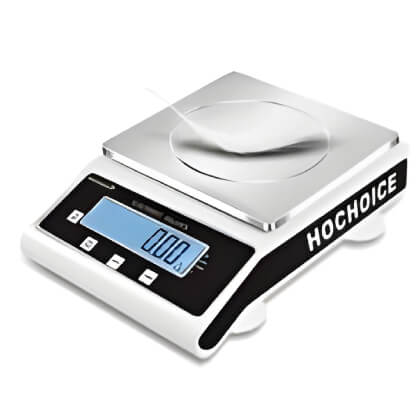
Precision balance scales are specialized measuring instruments designed to provide extremely accurate weight readings. They are commonly found in laboratories, production lines, and research facilities where even the slightest measurement error could affect processes, product quality, or research outcomes. By relying on sensors and technology that minimize external disturbances, these devices help ensure that every fraction of a gram or milligram is accounted for. Whether used to formulate pharmaceutical drugs or verify the purity of precious metals, precise measurements remain paramount in meeting rigorous standards.
Unlike general-purpose weighing devices, these scales focus on capturing the smallest increments of mass, making them vital for scientific experiments, high-end manufacturing, and quality control. Many industries depend on advanced features like internal calibration systems to protect their data from environmental fluctuations. By understanding the core principles behind precision balances and the breadth of their applications, users can confidently choose a model that best addresses their business or research requirements.
The Science Behind Precision Balance Scales
Precision balance scales rely on advanced load cells that convert weight into electronic signals. When an object is placed on the pan, the load cell experiences minimal deformation, which is measured and translated into precise data. This sensitivity is essential for industries that cannot afford errors, as even tiny variations affect product consistency and overall efficiency.
Additional features like automatic internal calibration and protective shields ensure these scales remain stable amid varying conditions. Temperature changes, air currents, or minor vibrations have less impact on readings when such safeguards are in place. Some models also come with dedicated software that processes data in real time, eliminating noise and providing consistently accurate measurements.
In large-scale operations, these technological advantages become even more valuable. Production lines rely on consistent weight data to optimize formulations, maintain inventory control, and adhere to regulations. If an ingredient or batch deviates by a fraction, the entire process could suffer. By investing in precision balances, companies minimize waste, enhance product integrity, and streamline their overall workflow.
Diverse Applications and Industries Served
Laboratories are among the primary users of these scales. Researchers in fields like biochemistry and pharmacology handle small samples requiring exact measurement. By trusting precise scales, they achieve reliable, repeatable results. Students in educational labs also learn the impact of minor deviations. In turn, this heightened awareness shapes future professionals who value meticulous scientific practices.
In the pharmaceutical industry, incorrect dosing of active ingredients can lead to unsafe products or ineffective treatments. Precision balances help maintain tight quality control and regulatory compliance. Meanwhile, food and beverage producers rely on exact proportions for consistent taste and texture. From flavor additives to nutritional supplements, every component is weighed carefully to preserve consumer satisfaction and safety.
Another important domain is jewelry and precious metals. Valuations hinge on precise weight readings, as even a small discrepancy can alter perceived value. From raw gemstones to fine gold, accuracy is paramount. Beyond these settings, precision balances serve countless industries, ensuring that vital weight data contributes to outstanding performance and enduring customer trust.
Tips for Selecting and Maintaining Precision Balance Scales
Selecting the right model starts with knowing the capacity and resolution needed. Laboratories may prioritize higher sensitivity, while manufacturing plants might require a robust design for heavier loads. Additional aspects like built-in calibration or connectivity options can further enhance efficiency. By clarifying your usage scenarios, you can choose a scale that consistently meets your operational demands.
Regular upkeep ensures extended service life. Cleaning the platform and surrounding surfaces removes dust or residue that could skew results. Perform calibration checks at recommended intervals, using certified weights or an internal calibration feature. Also, monitor environmental factors like temperature and vibration, as these can degrade accuracy over time if not properly managed and addressed.
Proper handling is equally vital. Avoid exceeding the scale’s capacity, as overloading can harm its internals. Keep it in a stable, dry place away from direct sunlight or chemicals. When moving the device, follow manufacturer guidelines to safeguard sensitive parts. With careful selection and maintenance, a precision balance can provide years of reliable deliveries of accurate results.
Conclusion
Balance scales are High-accuracy scales that have become indispensable tools for modern industries. From laboratories conducting sophisticated experiments to manufacturing lines requiring consistent product quality, these instruments help maintain exacting standards. By understanding their underlying tech, diverse applications, and proper upkeep, users can maximize performance. In an environment increasingly driven by data, precise measurements foster progress and lend credibility to crucial processes.
If you would like to explore our assortment of weighing systems and scales, consider browsing Sasco Africa’s extensive product lineup. Whether you operate a research lab, educational facility, or commercial enterprise, there is an ideal device to match your needs. Start your journey toward enhanced accuracy now, and bring unprecedented efficiency and reliability into every measurement process.


